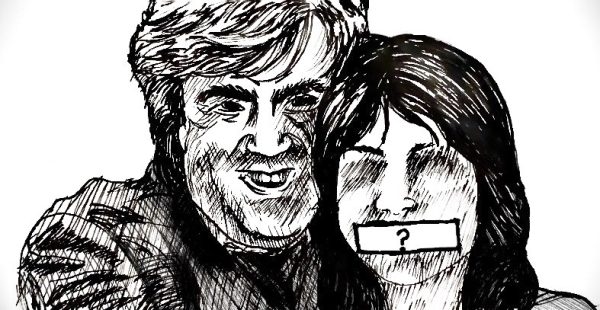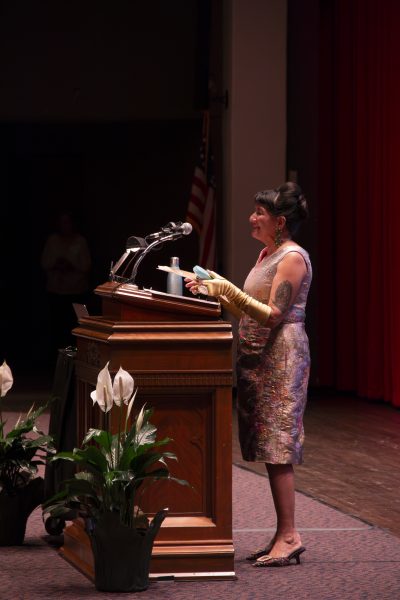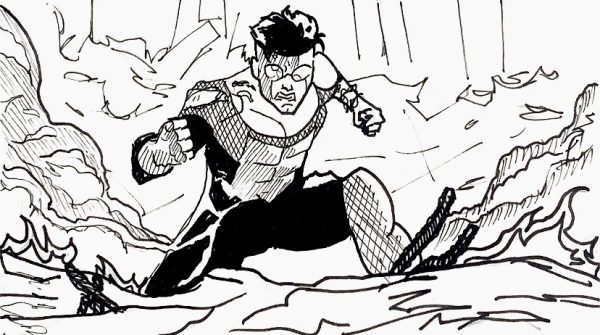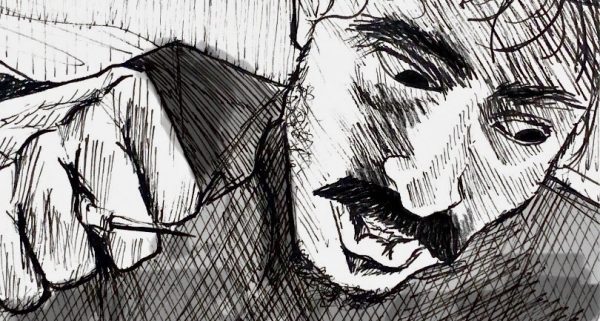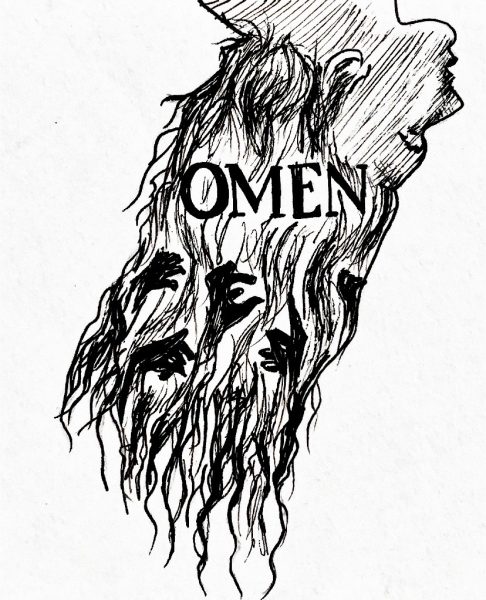The true horror of “Men”
Does Alex Garland’s latest feature actually say anything of merit?
“Men” is a 2022 folk horror film from director Alex Garland (“Ex Machina,” “Annihilation”) that explores the horrors of toxic masculinity and abuse. The film follows a woman named Harper (played by Academy Award nominee Jessie Buckley) who goes on vacation in the English village of Cotson after the death of her abusive husband (Emmy-winner Paapa Essiedu). While staying at a beautiful cottage owned by Geoffrey (Rory Kinnear), she is tormented by the men in the village—all played by Kinnear.
Although the film has received polarized reviews from critics, I personally loved “Men.” It’s a very well-made film that touches on a lot of hot-button issues, and as far as I’m concerned, these are (mostly) handled in a satisfying way.
From a technical standpoint, “Men” looks fantastic. Not only is Rob Hardy’s cinematography stunning, but the color correction makes every single image carry so much weight; its emphasis on green and orange is particularly interesting. Most of the flashback sequences of Harper living in the city are orange-tinted while most of the sequences in Cotson focus a lot on the color green. The film also has pretty well-done sound design and mixing, which greatly complement the score. There is a sequence where Harper is in a church and starts screaming in anguish; in this scene, the score almost sounds like harmonic wailing, and it’s executed in a way that almost makes it seem like Harper’s screams are part of the music itself.
While the technical aspects are very well-executed, I think that this movie’s biggest strength is the performances. Buckley gives a certain amount of pathos to Harper, which is impressive considering that the character is not really given many character traits. This may sound like a critique, but if anything, I think this shows how talented Buckley is. She fully takes on Harper’s grief while simultaneously selling her as a strong character to cheer on.
While he is not in too much of the film, Paapa Essiedu was also excellent. His character is despicable and he is essentially the cause of most of Harper’s pain and grief. Even though the character is a horrible person, Essiedu plays the character with a certain level of calmness while still being intimidating. Many films that deal with domestic violence focus on the physical aspect, whereas this film recognizes the prevalence of emotional abuse in these relationships.
Out of all of the actors in the film, the best performance is easily from Kinnear. Playing two characters in a film is already a daunting task, but playing eight or nine different characters, including a young boy, is just flat-out insane. But impressively enough, Kinnear pulled it off. He messes around with different voices, postures and overall body language to differentiate between all of his characters; not only that, but the makeup and hairstyling teams put in a lot of effort to make the characters have subtle differences. All of these details work to create a surreal tone, and it makes the experience of watching the film incredibly uncomfortable.
The aspect of “Men” that has divided a lot of critics is the film’s script. Even though I do understand the complaint, I personally felt that the story and themes were handled pretty well overall.
The main criticism is that the movie is just saying “men are bad,” which is a gross and moronic oversimplification. The film is about the cyclical nature of toxic masculinity and how it has influenced misogynistic rhetoric and behavior throughout history. Without spoiling the film, there is a very specific reason why all of the men in the village look the same. Part of this is to imply that men are all the same, but there is more to it (which is alluded to in the film’s ending). There are also a lot of Biblical references as well as allusions to the Green Man (a mythological creature symbolizing rebirth) and the sheela na gig (a symbol of fertility), both of which make way for the film’s spiritual themes. I believe that the film gives a reason for why men hurt women, but not a justification. Instead, the film feels like it is trying to argue that men need to deal with these issues on their own and that this trauma will never be an excuse to harm women.
If there is anything I can criticize, it would be that the film lacks subtlety. It never feels like the film’s themes are things to be interpreted, and they instead feel like Garland is just grabbing me by the shoulders and screaming at me. While this lack of subtlety could be an asset to the film, it also feels like the “Men” would have been better if it was less on the nose.
In spite of some cliched moments and on-the-nose execution of its themes, I believe that “Men” is a horror movie that most people should watch. Even if it isn’t for you, the film has a lot to say, and after having watched the film three times to comb through the details, I would say that it mostly succeeds. Garland’s latest film is an incredibly well-directed and well-acted folk horror film that deserves to be watched and discussed.
Rating: 8/10

Hey guys! My name is Om Dighe, and I'm an arts columnist specializing mainly in movies, television and video games. I'm from Spring, Texas, and I'm a...

I'm Tony Rodriguez! I'm a junior from San Antonio, TX, majoring in math, and I worked as a copy editor for the Trinitonian about two years ago and am now...




